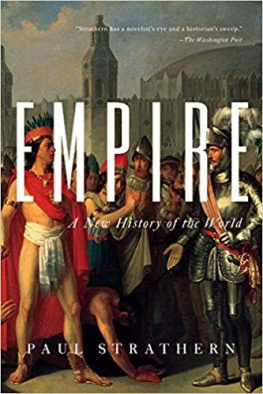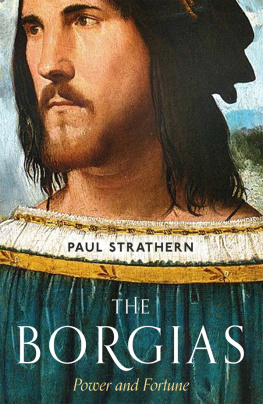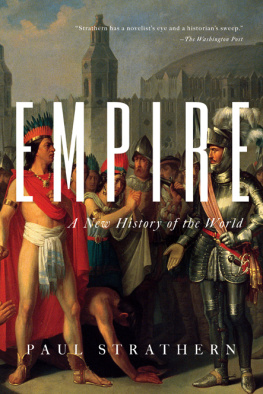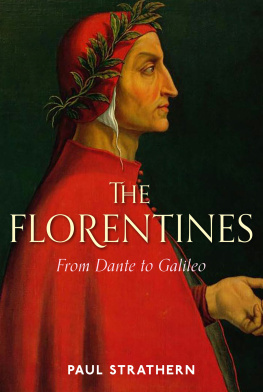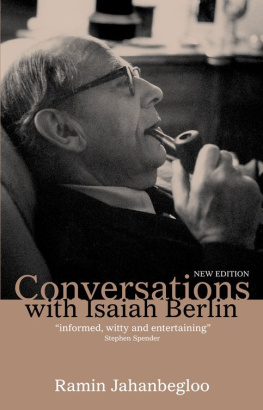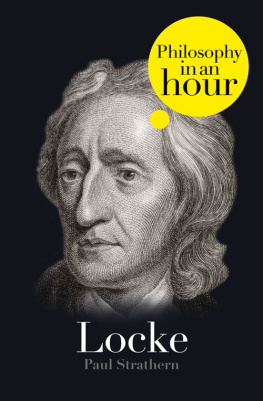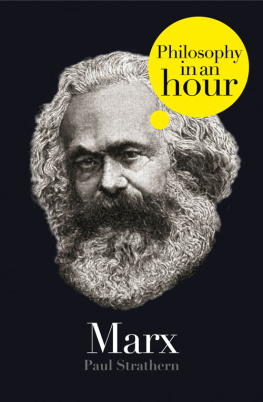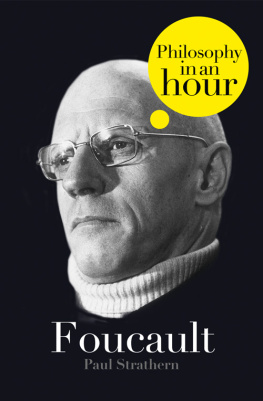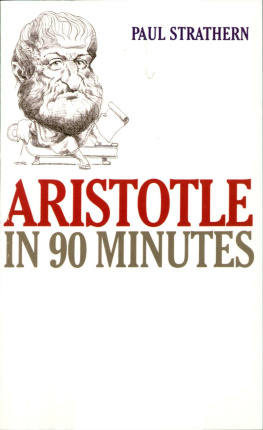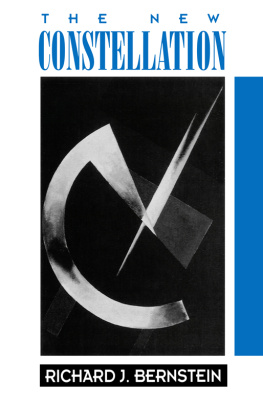DERRIDA IN 90 MINUTES
Derrida
IN 90 MINUTES
Paul Strathern

DERRIDA IN 90 MINUTES. Copyright 2000 by Paul Strathern. All rights reserved, including the right to reproduce this book or portions thereof in any form. For information, address: Ivan R. Dee, Publisher, 1332 North Halsted Street, Chicago 60622. Manufactured in the United States of America and printed on acid-free paper.
Library of Congress Cataloging-in-Publication Data:
Strathern, Paul, 1940
Derrida in 90 minutes / Paul Strathern
p. cm. (Philosophers in 90 minutes)
Includes bibliographical references and index.
ISBN: 978-1-56663-329-1
329-X (pbk. : alk. paper)
1. Derrida, Jacques. I. Title: Derrida in ninety minutes. II. Title.
B2430.D484 S77 2000
194dc21
00-056963
Contents
Introduction
I love nothing better than remembering and Memory itself, claimed Jacques Derrida in his 1984 memoir of his close friend, the philosopher Paul de Man, who had recently died. Yet at the same time Derrida confessed: I have never known how to tell a story. These two characteristics are far from being contradictory for the author. As he says of himself: It is precisely because he keeps the memory that he loses the narrative. The image remains legible; incorporating it in a story inevitably blurs this legibility, imposing interpretation. So far so good. It thus comes as something of a surprise when we discover that the ensuing memoir contains not a single image of his friend and absolutely no memories of him. Needless to say, there is not even a hint of story about him: this would impose interpretation. Yet paradoxically this entire so-called memoir is devoted to an interpretation of his friends intellectual achievement. In his own words, Derrida dialogues obliquely with de Mans work, obscurely interpreting it with regard to prudent explication and a battery of performative acts by such figures as Heidegger, Austin, Hlderlin, and Nietzsche.
Any clear, commonsense approach to Derridas work thus labors under a severe disadvantage. Worse still, it goes completely against the authors intention. It is therefore only fair to warn the reader that my attempt at clarity in the ensuing description of Derridas life and work would be regarded by its author as both counterproductive and hopelessly biased. Wit, on the other hand, is definitely permitted. Derrida is a great believer in jokes, puns, and humor. Yet here again we suffer a setback: this is specifically French intellectual humor. It derives from that modernist tradition of European Continental art and thought known as the absurd. When confronted with an absurd situation, innocent outsiders living beyond this privileged intellectual territory are wont to laugh. Such naivet displays a woeful misunderstanding. The absurd is a notion of utmost seriousness. Similarly with Derridas humor. This is no laughing matter. It is not funny (except to French intellectuals). Such humor doesnt play for laughs. Derrida may share a Jewish background with Woody Allen, but by no stretch of the imagination do they share a common humor. Whether the Manhattan hypochondriac or the great Parisian intellectual sheds more light on our varied humanityin other words, is more seriousis another question.
Derridas Life and Works
Central to Derridas deconstructionist philosophy is his insistence: There is nothing outside the text. Despite this, and no matter which textual form it takes, the fact that Jacques Derrida was born in Algeria in 1930 would appear to remain impregnable to deconstructive assault. His family were petit bourgeois assimilated Jews, both part of the French colonial class and yet partial outsiders within it. He grew up in the capital, the seaside city of Algiers. Here the Europeans lived the easygoing empty Mediterranean life revolving between business, caf, and beachso tellingly evoked by the French-Algerian writer and philosopher Albert Camus in The Outsider. Derrida lived on rue Saint-Augustin, a fact that would play a leading yet somewhat serendipitous role in his 1991 autobiography. This he called Circumfession, its title implying the two main topics: circumcision and confession. Yet by the end of the work we are left little the wiser about details of either. At one point, apparently referring to himself, Derrida writes: he circumcises himself, the lyre in one hand, the knife in the other. Yet some pages later he writes: Circumcision remains the threat of what is making me write here. The confessional element is equally muddied. At one point he addresses the reader with regard to his mother: I lied to her all the time, as I do to all of you. There follows a long Latin quotation from The Confessions of St. Augustine. Derridas circumfession has many Latin quotes from St. Augustine, with whom he seeks to identify. St. Augustine was in fact born in 354 A.D. in the Roman colony of Numidia, whose territory now forms part of Algeria. Other resemblances to the early Christian philosopher and religious confessionist are more fleeting. Besides identifying with St. Augustine, Derrida also fantasizes about him, envisioning the Christian saint as a little homosexual Jew (from Algiers or New York), and even refers to his own impossible homosexuality. At another point he professes: I do not know Saint Augustine. Having established this much, we can now move on to more factual ground.
In 1940, when Derrida was just ten years old, Algeria was dragged into World War II. Although the country never saw fighting, or even so much as a German uniform, the war cast its pestilential shadow over life in the French colony, which had now become a protectorate of the Nazi empire. Again, Camus captures the atmosphere of the period, this time in The Plague. France had been overrun, and French Algeria was governed by the collaborationist Ptain regime. In line with Nazi decrees, in 1942 racial laws were introduced, bringing to the surface a latent anti-Semitism amongst the European population. Derrida was informed by a master at school: French culture is not made for little Jews. It was the privilege of the top pupil to raise the French flag each morning at school; but in Derridas case this was reassigned to the second in the class. A quota system was introduced limiting each lyce (high school) to 14 percent Jews. Derridas headmaster soon took it upon himself to reduce this quota to 7 percent, and Derrida was expelled. At street level such attitudes degenerated to name-calling and even violence.
The effect of all this on an exceptionally intelligent, sensitive pupil can only be imagined. It is also equally understandable that the man who emerged from this experience should deny the effect of his early life on his later thought. After all, his avowed aim was to interrogate philosophy, not himself. Consequently he remained averse to supplying personal details that appeared to provide a causal link between his life and his work. And with some justice. It should be remembered that the mature survivor thought out his philosophy despite such attempts to sabotage his intellectual and social life.
For a while, the early teenage Jacques received no education. He was enrolled at the unofficial Jewish lyce but secretly played truant most of the time. He was aware of belonging to Judaism; yet though he had grown up assimilated into European society, he now felt he was not a part of it. His painful experience led him to reject racism of any sort; yet in the words of his collaborator Geoffrey Bennington, he also experienced impatience with gregarious identification, with the militancy of belonging in general, even if it is Jewish.
Next page


